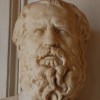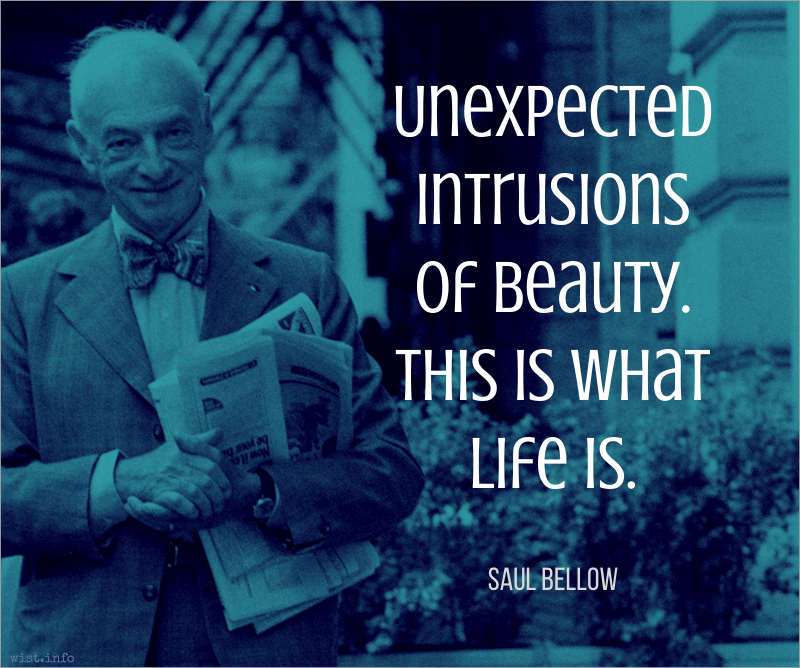If you do not expect the unexpected, you will not find it; for it is hard to be sought out and difficult.
[ἐὰν μὴ ἔλπηται ἀνέλπιστον οὐκ ἐξευρήσει, ἀνεξερεύνητον ἐὸν καὶ ἄπορον]Heraclitus of Ephesus (c.540-c.480 BC) Greek philosopher [Ἡράκλειτος, Herákleitos, Heracleitus]
Fragment 18 [tr. Burnet (1920), DK B18]
(Source)
(Source (Greek)). Alternate translations:
He who does not expect will not find out the unexpected, for it is trackless and unexplored.
[tr. Kahn (1981), VI (D. 18)]
He who does not expect the unexpected will not find it out.
[tr. Kahn (1981), VI (D. 18), variant]
He who does not expect the unexpected will not find it, since it is trackless and unexplored.
[tr. Allan (2008)]
Unless you expect the unexpected, you will not find it, for it is hidden and thickly tangled.
[tr. Jenks (2014)]
Quotations about:
unexpected
Note not all quotations have been tagged, so Search may find additional quotes on this topic.
The art of war deals with living and with moral forces. Consequently, it cannot attain the absolute, or certainty; it must always leave a margin for uncertainty, in the greatest things as well as in the smallest. With uncertainty in one scale, courage and self-confidence should be thrown into the other to correct the balance. The greater they are, the greater the margin that can be left for accidents.
[Die Kriegskunst hat es mit lebendigen und mit moralischen Kräften zu thun; daraus folgt, dass sie nirgends das Absolute und Gewisse erreichen kann; es bleibt also überall dem Ungefähr ein Spielraum, und zwar eben so gross bei dem Grössten, wie bei dem Keinsten. Wie dieses Ungefähr auf dereinen Seite steht, muss Muth und Selbstvertrauen auf die andere treten und die Lücke ausfüllen. So gross, wie diese sind, so gross darf der Spielraum für jenes werden.]
Karl von Clausewitz (1780-1831) Prussian soldier, historian, military theorist
On War [Vom Kriege], Book 1, ch. 1 “What Is War? [Was ist der Krieg?],” § 22 (1.1.22) (1832) [tr. Howard & Paret (1976)]
(Source)
(Source (German)). Alternate translations:
The art of war has to deal with living and with moral forces; the consequence of which is that it can never attain the absolute and positive. There is therefore everywhere a margin for the accidental; and just as much inthe greatest things as in the smallest. As there is room for this accidental on the one hand, so on the other there must be courage and self-reliance in proportion to the room left. If these qualities are forthcoming in a high degree, the margin left may likewise be great.
[tr. Graham (1873)]
The art of war has to do with living and with moral forces; from this it follows that it can nowhere attain the absolute and certain; there remains always a margin for the accidental just as much with the greatest things as with the smallest. As on the one side stands this accidental element, so on the other courage and self-confidence must step forward and fill up the gap. The greater the courage and self-confidence, the larger the margin that may be left for the accidental.
[tr. Jolles (1943)]
Unexpected intrusions of beauty. This is what life is.
No one is so brave that he is not disturbed by something unexpected.
[Nemo est tam fortis, quin rei novitate perturbetur.]
Julius Caesar (100-44 BC) Roman general and statesman [Gaius Julius Caesar]
The Gallic Wars [De Bello Gallico], Book 6, ch. 39 (49 BC)
(Source)
Alt. trans.: "No one is so courageous as not to be disconcerted by the suddenness of the affair." [tr. McDevitte and Bohn]












